Deciding to euthanize a beloved pet is one of the most difficult decisions that anyone can possibly make. Especially when it comes to behavioral euthanasia – the decision to euthanize a dog for severe behavioral concerns.
Though this option is never made lightly, there are a small percentage of dogs who will never be manageable or fixable. They are dangerous to themselves and others and thus are living a poor quality of life in solitude via extreme management measures.
You should never have to make this type of decision alone. A behavior consultant and your veterinarian can help to guide you through the decision. But ultimately, the decision is personal. It’s yours to make.
Below, we will discuss some of the things you’ll need to consider before deciding whether to euthanize your dog for his aggressive behavior or continue with management strategies and behavior modification.
Key Takeaways: When Should an Aggressive Dog Be Euthanized?
- Some aggressive dogs may be dangerous enough to warrant euthanasia.
- You’ll want to make these types of decisions in conjunction with your veterinarian and a certified canine behavior consultant.
- It is important to consider your living situation and the resources you have to offer when deciding whether or not to euthanize an aggressive dog.
- There are a few viable alternatives to euthanasia, which may work in some circumstances.
Signs and Behaviors That Dog Euthanasia May Be Warranted
Every dog and every situation will differ, and the decision to euthanize an aggressive dog will ultimately come down to the severity and danger level of the situation.
When considering euthanasia, you’ll want to think about the following four things:
1. The Intensity Level of the Aggression.
A canine behavior consultant can help you to assess the severity of the situation using Ian Dunbar’s Bite Scale or Dr. Sophia Yin’s Canine Bite Levels.
Both scales have six categories:
- Level 1: The dog snaps at a person but does not make contact.
- Level 2: The dog actually bites the victim and achieves tooth on skin contact, but causes no puncture wound.
- Level 3: The dog’s bite penetrates the victim’s skin, but the wound is shallower than the length of a canine tooth.
- Level 4: The dog not only bites, but he clamps down and/or shakes his head too. Because of the clamping and pressure applied, the wounds are deeper than the length of a canine tooth.
- Level 5: The dog inflicts multiple bites or attacks victims multiple times.
- Level 6: The dog bite leads to the victim’s death.
If a dog has a bite history, it is important to note the frequency and severity of the bites that have occurred. Generally speaking, the more severe or frequent the bites are, the more likely you’ll have consider euthanizing your dog.
2. The Absence of Warning Signals
Almost all dogs give a warning before they bite — very few bites happen “out of the blue.” In fact, there is usually an escalation from mild stress signals, to severe warnings, to an eventual bite if the warnings are not heeded.
However, in some rare cases, a dog may not give any warnings at all. This could be due to medical or neurological issues. It could also be because he’s been punished for giving warnings in the past.
Dogs who fail to give warnings are often considerably more dangerous than dogs who communicate their feelings before reaching their breaking point.
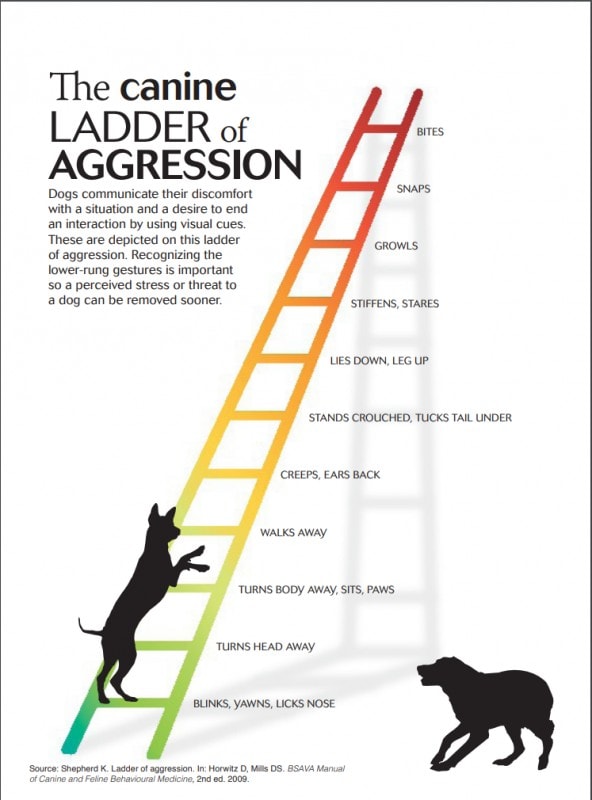
3. Unpredictable Behavior
If your pup displays warning signs, such as growls, snarls, or stress signals, when he gets upset, then his behavior is predictable. If you know his triggers – for example, he becomes agitated or anxious when he thinks you’ll take away his food (aka resource guarding) – his behavior is also predictable.
This is a good thing.
Predictable behavior is often manageable behavior. We can prevent bites from happening and work to modify his underlying feelings of fear or anxiety to decrease the likelihood of a future bite.
However, if your dog is truly not giving any warning signals or there are no discernible patterns to his aggressive behavior, it can be incredibly difficult to manage him and to ever feel truly safe.
This could result in a dog who spends the majority of his time kenneled for preventative measures, decreasing his quality of life.
4. Size of the Dog
It isn’t an easy thing to talk about, but size matters when considering behavioral euthanasia. Clearly a large German shepherd or cane corso can do much more damage than a papillon.
This is not breed discrimination; it is simply an undeniable fact that larger breeds are capable of inflicting much more severe wounds than smaller breeds.
This means that you may have to consider euthanasia more seriously for a larger dog than a smaller dog, even if they have similar bite histories.
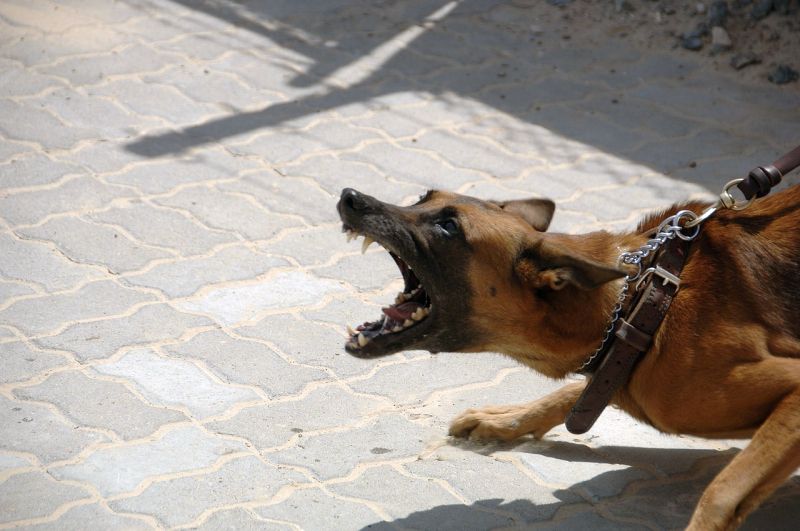
The Potential Ramifications of an Attack or Bite
When trying to decide if euthanasia is appropriate, it’s important to consider the consequences of caring for an aggressive dog. Especially if the dog has already done something serious, such as biting a child or killing another dog.
Ultimately, in the United States and many other Western counties, our dogs are considered property. That means we are financially, emotionally, morally, and legally responsible for their actions.
That means you’ll want to consider what could happen if your dog bites someone. This includes:
Physical Injury
As we have discussed, bites can vary in severity, but almost certainly, bites usually get worse over time (more frequent and/or more virulent). But whether this is your dog’s first bite or the most recent of many, the results can be very serious.
In a best-case scenario, a minor bite could be simply startling and painful. It may not cause punctures or bleeding, but perhaps bruising and broken trust. Minor bites might also cause small punctures, and it’s important to visit your doctor in order to have the wound properly cleaned and tended to.
But in a worst-case scenario, there could be multiple bites and head shaking. This could result in very serious wounds, including lacerations, severe bleeding, or broken bones. In extreme cases, these injuries could ultimately lead to the victim’s death.
In such scenarios, you may even have to use emergency intervention to stop the attack and contain the dog. No one wants to imagine that this kind of thing could happen, but sadly, it can.
Mental or Emotional Trauma
If there is one thing that is particularly upsetting for dog parents, it’s having your very own dog behave aggressively towards someone. Particularly if the target of your dog’s aggression is someone in your household or if that target person is you.
But there’s no getting around it: Mental and emotional trauma often follows a dog bite or attack.
We tend to feel as though we have failed our pups in these situations. That they must not love us. That we are “bad” dog parents. Or, that somehow, it’s our fault.
On the other hand, for those who have been attacked by a dog, whether it’s their own dog or a strange dog, there is an inherent underlying fear that often develops towards that dog, or any dog.
Unfortunately, the trauma of an injury goes far beyond the physical wounds and may scar our minds forever.

Legal Ramifications
In most places, dogs are considered our property under the eyes of the law. Therefore, the liability you carry for your dog can be based on the idea of negligence.
This can be in the form of failing to properly secure your dog or entrusting him with someone deemed unfit to restrain him, for example. According to Rebecca Wisch from Michigan State University College of Law, the court may consider several things when deciding whether a dog owner is negligent:
- Was your dog’s action categorized as a “dangerous” activity?
- Does your dog have a bite history or a history of aggressive behavior?
- If so, did the defendant have any knowledge of your dog’s aggressive history?
- Was your dog’s dangerous behavior what caused the harm?
Therefore, if you have prior knowledge that the dog has behaved aggressively and haven’t done your due diligence to manage your dog, you could be liable.
Some states may also impose a more stringent specification called “strict liability”. In those states, the liability is automatically yours for attacks, bites, or injures. You may even be held liable for damages if your dog simply chases someone.
In other words, it’s not necessary to prove that the owner was negligent in these states.
Additionally, nearly all states, most Canadian provinces, and several countries have some laws that govern what can be termed “dangerous dog” laws.
This could result in anything from breed specific bans to “strict liability” for dog parents of “dangerous breeds or dogs”. This strict liability law may also mean that you will be liable regardless of whether the person who was bitten was trespassing on your property or not.
Financial Ramifications
Vet bills, doctor’s bills, and training costs could be the very least of your worries following a dog bite. You could also get sued if your dog bites another person or animal.
Insurance policies may provide you with some financial protection. However, not all insurance policies will cover the costs associated with a bite, and the amount could also be in excess of your policy payout.
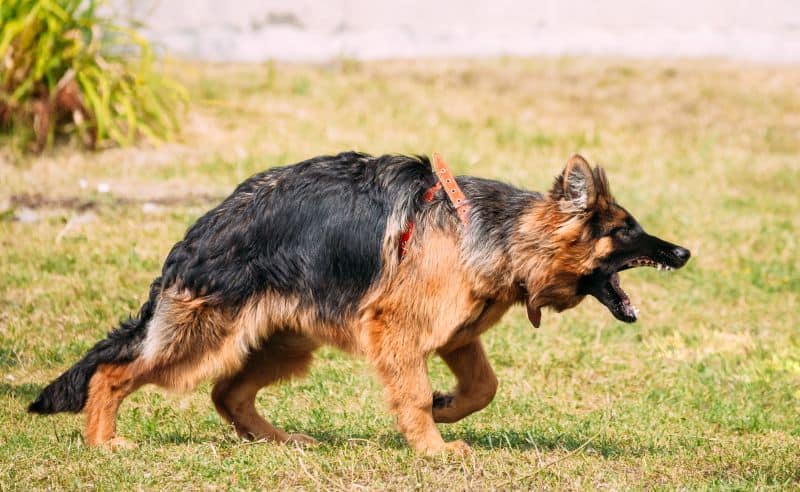
Owner Considerations When Debating Euthanasia
There is no one size fits all answer to whether someone should euthanize their dog for behavioral reasons. It’s a personal and often devastatingly hard decision. Always speak with your veterinarian and certified behavior consultant before you make any decision.
The following may help you decide when it is right to have a conversation:
Your Resources
You will need to decide if you have the resources to both manage your dog and to be able to work on a treatment plan.
Everyone who makes the decision to euthanize their dog loves them very much. We want to do what’s best for them. But despite what you read and hear, love isn’t always enough.
It is emotionally exhausting managing a dog with serious behavioral issues. It can also be very expensive to work with your behavior consultant and veterinary team.
Knowledgeable behavior consultants cost anywhere from $80 – $100 or more per hour. Online behavior consultations can bring down costs considerably, but for extreme cases of aggression, in-person work is often preferable.
Your Living Situation
There are a lot of variables to consider when living with a severely aggressive dog. It is important to consider the costs and benefits of living in a home with these types of serious behavioral issues.
For example, you’ll want to consider if there are:
- Children in the house
- Frequent visitors
- Other dogs or pets
Also consider whether these are avoidable or manageable variables, and how much this might affect both you and your dog’s quality of living. For example, is it feasible to keep your dog separated from most other people?
Do you have a way to ensure your dog still gets exercise, affection, and everything else he needs to enjoy a high quality of life, while being managed in a way that prevents him from biting anyone?
These variables may be out of your control and they may be a vital component to your life.
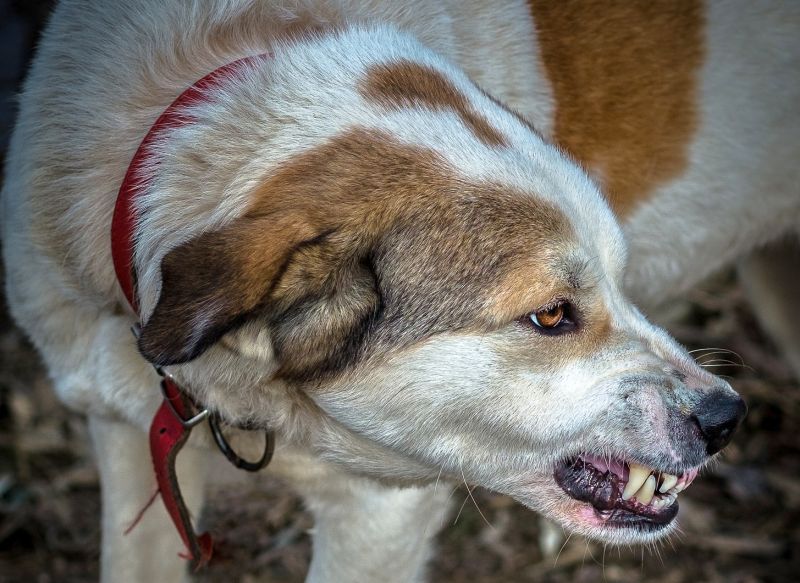
Your Dog’s Age
Age may or may not play a factor in your decision. Overall, I would say that age doesn’t matter.
Any dog of any age can become aggressive for many reasons, including medical-, psychological- or trauma-related issues. It could be genetics, and sadly, there’s not much we can do about that other than to continue to push for better breeding regulations.
However, there may be other factors you’ll want to weigh when making your decision.
If your senior dog has suddenly become unpredictably aggressive in part due to a cognitive decline at the age of 13, you may decide that he has had a great life until this point and there is likely only going to be regression from here on out.
If, on the other hand, you have a young puppy showing aggressive behaviors, diligent hard work with behavior modification and behavioral medication may be successful. But just because he is young, doesn’t mean that it’s a solvable problem 100% of the time.
Your Dog’s Breed
Dogs are individuals. Of course, some dogs have been bred specifically with certain drives and traits in mind. But aggression is not a breed-specific trait, and any dog of any breed can act aggressively.
However, some breeds are larger and stronger than others, making their bite force simply much more dangerous to the victim. A standard poodle, for example, by weight and size alone, can do more damage than a miniature poodle.
Questions to Ask Yourself When Contemplating Euthanasia
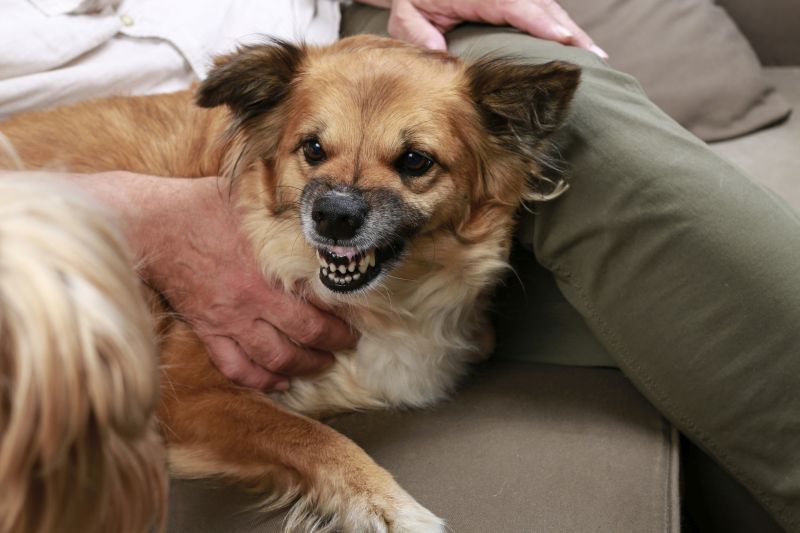
Owners of aggressive dogs have a lot to look at when considering if behavioral euthanasia is the right decision. It’s not always a black and white question and answer, and gray areas may exist that need to be explored.
Scott Sheaffer, CDBC, CBCC-KA, CPDT-KA says it best:
“It’s not as simple as just determining if a dog is human aggressive when considering euthanasia. There are important variables to consider such as type of human aggression, intensity of aggression, how long the dog has been presenting with the behavior, size of the dog, human bite history and whether there are treatment options with a realistic positive prognosis.”
We’ll explore this issue in greater detail below.
1. Is My Safety or My Family Members’ Safety Compromised?
Most importantly, you must consider everyone’s safety when contemplating euthanasia. This includes the safety of you, your dog, as well as the safety of other people and animals in your home.
If your dog is a constant threat to others, the situation is not only dangerous but also stressful for everyone — including your dog. Living in a constant state of terror is no way to live at all, and you can’t risk yourself or others if the aggression is unmanageable.
That being said, there are a number of management tools you can employ to keep your family safe, including:
- Muzzles. Especially useful for walks and outdoor settings where your dog may be in contact with the public and other strange animals.
- Gates. Gates can be used to seperate animals in the home or keep a resource-guarding dog isolated safely while he eats. Gates can also be set up in doorways or foyers to double-secure a dog from escaping via an outside-facing door.
- Crates. A crate can be used to isolate a dog when company is over, or when a dog needs to be left alone while eating.
Everyone has a different idea of what kind of scenarios are “safe” and which are manageable. However, the management tools listed above can go a long way towards mitigating risk. Canine management solutions are often best employed while an owner seeks out veterinary help or a consultation with a certified behaviorist to begin working on medication and/or a training plan.
You’ll also need to consider who else resides in your household. Many owners have less tolerance for an aggressive dog in a home with small children as opposed to a home with only adults. This also means looking at your dog and realizing what he’s capable of.
When a dog bites a child, the amount of damage can vary a lot based on the child’s age and the dog’s size. A large, powerful breed is more likely to inflict serious harm (or -rarely – even death) on a child, while a small or toy breed dog is not.
2. How Much Am I Willing to Modify My Living Arrangement?
Unfortunately, housing and caring for an aggressive dog can essentially feel like a full-time job.
You must provide an environment where safety is paramount for everyone, with an escape-proof home and outdoor time that is carefully monitored to ensure your dog is secured at all times. In some instances, this may mean keeping him muzzled when out on walks or upgrading your fencing.
You’ll also have to forgo some of the fun things other dogs and their people get to enjoy.
You probably will not, for example, be able to welcome visitors into your home or casually chill at the local coffee shop with your pooch. And visits to the dog park may be complete non-starters. These don’t necessarily need to be deal-breakers, but you will want to consider how much you value these activities.
If you absolutely love to host parties and gatherings with friends nearly every weekend, and you have a dog who is terrified of strangers and has severely bitten guests in the past, there is a compatibility issue. This doesn’t need to result in euthanasia, but it will require a reframing of your values or the consideration of rehoming.
In other cases, the living arrangement is simply bringing on too much stress for the dog. A timid dog may struggle to handle the loud noises associated with city life, and resort to aggression to keep scary cars and bicycles at bay.
Again, this doesn’t need to result in euthanasia, but it will require some consideration as to what your dog’s ideal home might look like – and is such a home even a possibility?
Also, it’s important to realize that your dog may only allow you or select people to care for him.
This makes traveling very challenging. Trips away may require more experienced dog handlers to dogsit or require you to board your dog in facilities that cater to aggressive dogs, all of which can come with a considerable cost. You’ll also have to consider the possibility that you’ll suffer an unexpected illness or injury. If you’re incapacitated or unable to care for him normally, who will take care of him?
3. How Much Time and Effort Am I Willing to Put In?
You must be honest with yourself about how much time you have to devote to work on training with an aggressive dog and what your abilities are in regards to training.
Some questions to ask include:
- Can you work with a professional for the months (or more) it may take?
- Can you afford to pay for this training and any equipment or medications necessary?
- Are you willing to work with a dog who has frightened you or injured you in the past?
It’s never easy to ask these questions.
A dog is a serious commitment, and you do owe it to your dog to at least do the basics, which include:
- Consult with your veterinarian. You’ll always want full labs and bloodwork performed on an aggressive dog to see if there is an underlying medical issue that could be at play.
- Reach out to a Certified Canine Behavior Expert. A behavior expert can help you identify why your dog is demonstrating aggressive behaviors and help you develop a training plan. They can be pricey, but many offer online options as well that are more affordable.
Even after following these steps, you may find that you simply don’t have the time or ability to work with an aggressive dog. Maybe you are a caretaker for an elderly relative, or already have your hands full with three children at home.
There are many reasons why you may be unable to devote such extensive amounts of time to working with your dog on his aggression issues (and make no mistake, it will indeed take a significant amount of time to resolve).
For the vast majority of aggressive dogs, there are behavior plans that can help a dog improve. But, especially for an inexperienced dog owner, it can still take months and months of work. Even years.
Sometimes the cost associated with rehabbing an aggressive dog is just too high. Not just the financial cost (which yes, can be considerable) but the emotional and time cost as well.
Different individuals may be at different points in their life when they need to contemplate how to handle their aggressive dog. Some are better suited to handle the emotional burden and stress than others. Some are interested in dog training and up for the challenge, while others are not.
Let me say – there is no shame in deciding you don’t want to devote the next years of your life to rehabbing a problem dog, especially a dog you’ve adopted without knowledge of their issues, and especially when the aggressive bouts are difficult to manage and difficult to predict.
4. What Type of Aggression is My Dog Displaying? How Severe is it?
As we’ve discussed, there are various types of dog aggression, and it’s important to evaluate all dogs on a case-by-case basis.
For example, there’s a clear difference between a dog-aggressive pupper who reacts to other canines and a people-aggressive dog that poses a risk to humans.
Dog-on-dog aggression is far easier to handle and less of a danger than human-directed aggression.
There are also varying degrees of aggression toward people; some dogs may only growl at humans, while others may lunge or actually attempt to bite strangers. And there’s even a lot of variation among dogs who bite. Some will only deliver warning nips that don’t break the skin, while others will deliver full-power bites that cause traumatic injuries requiring stitches.
Ultimately, the more severe the aggression and reaction, the greater the risk to others. And the greater the risk to others, the more seriously you need to consider behavioral euthanasia. If your dog has been known to bite with enough force to put someone in the hospital, you’re dealing with a much higher-risk situation than a dog that barely breaks skin.
While most dogs display subtle warning signs prior to a bite which can be detected with some basic understanding of dog body language, some dog aggression may be idiopathic, meaning it’s of unknown origin. Idiopathic aggression is often the most dangerous form of aggression, as it tends to be unpredictable.
Dogs with idiopathic aggression tend to struggle in most home settings and are an ongoing risk to those around them. Their reactions are often sudden and explosive, which can result in serious and terrifying injuries.
5. What Kind of Legal Liability Am I Willing to Take On?
It’s important to know that owning a dangerous dog may not be legal where you live, especially if you’re in an apartment or renting a home.
If your dog has a bite history or has been legally deemed a dangerous dog, you may be bound by the court to uphold certain living conditions. For example, in New York, you may be required to carry a liability insurance policy and muzzle your dog at all times in public.
In other cases, the dog may even be seized and euthanized without your consent.
An aggressive dog can also make finding and keeping homeowner’s insurance difficult. And if you find coverage, you will likely pay a premium rate if your dog has a bite history. Never lie on these forms, as tempting as it might be to save a few bucks.
In addition to the claim being denied if your dog bites someone, you might face legal trouble for falsifying insurance forms.
6. Can My Dog Still Have a Good Quality of Life?
It’s important to consider this question carefully: Does my dog have a good quality of life? Beyond his basic needs, is it possible to also achieve his emotional needs? This may differ from dog to dog.
An older Lhasa apso may be quite content to stay on his property for the rest of his life and enjoy your company solely. But a young husky may find this kind of life very depressing and stressful.
Ask yourself:
- Is my dog able to experience life the way he should or could? Or is he spending 15 hours a day in a kennel because he can’t be trusted around people or another dog in the home?
- Are you able to provide him the proper care he needs, or is it too risky to handle him?
- Is management so restricting that his entire agency and ability to express natural behaviors inhibited?
If your pooch is going to spend 99% of his time kenneled or alone, he isn’t going to enjoy much of a life.
And depending on what’s causing the aggression, this environment may make the situation far more volatile and stressful.
When a dog is so aggressive that he can’t interact with anyone or anything without becoming dangerous, it’s time to consider his mental well-being going forward.
The Ohio State University’s College of Veterinary says it best:
“Ask yourself: Is my pet having more bad days than good? Can he still enjoy his favorite activities? Is he able to spend time with his people, or does he need to be isolated for safety?”
It’s very normal to have a lot of guilt when contemplating behavioral euthanasia for a dog, but sometimes it’s the safest option for humans as well as the most humane option for the dog.
While you need to consider the safety and well-being of you, other people, and other pets, you must also take your dog’s quality of life into account when trying to figure out a path forward.
These are tough questions to face, but they are imperative to help guide you through this very emotional decision.
Alternatives to Euthanizing an Aggressive Dog: What Else Can You Try?
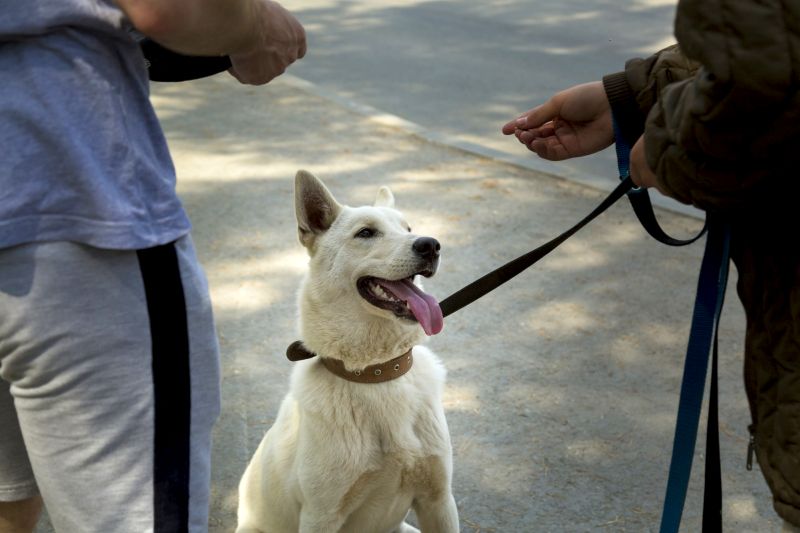
In some instances, there are alternatives to euthanizing an aggressive dog.
These alternatives aren’t always appropriate, and dog aggression is an incredibly nuanced issue that should always involve a certified dog behavior expert. But, you may find one of the following solutions will allow you to avoid behavioral euthanasia if your dog’s aggression is manageable or if a change in environment could be a major factor.
It’s best to exhaust all options before you consider the possibility of euthanasia. Some of the best alternatives to euthanasia include:
Rehoming
You may be able to rehome your dog if his aggression doesn’t put other humans in danger.
As an example, you may be able to rehome a dog-aggressive canine or if you can find a suitable family that doesn’t have any other dogs. The same holds true for dogs who don’t do well with cats – there are plenty of homes out there that are feline-free and might not care much if their dog has a high prey drive that doesn’t mix well with cats.
Perhaps a home without children, or other dogs would be a better fit for your pooch. Or maybe a home that is less busy or located in a rural area.
In these instances, you must ensure the dog is going to responsible owners who are fully aware of the dog’s issues. You must disclose any bite history to prospective owners. Not only is this just the right thing to do, but you may be held legally liable for any damages that occur if you do not.
However, in many other situations, rehoming won’t be a solution for dogs displaying severe aggression. Or heck, even moderate aggression – most folks aren’t interested in bringing home a bite risk. Your chances at rehoming might be a bit better if your dog is a specific breed with a big fanbase or a breed that’s somewhat rare.
Some breed advocates who are crazy about certain types of dogs may be more willing to overlook problem behaviors.
Rehoming your dog is not a guarantee that your dog’s quality of life or behaviors will improve. But for some dogs, it very well could.
Surrendering an Aggressive Dog to a Shelter
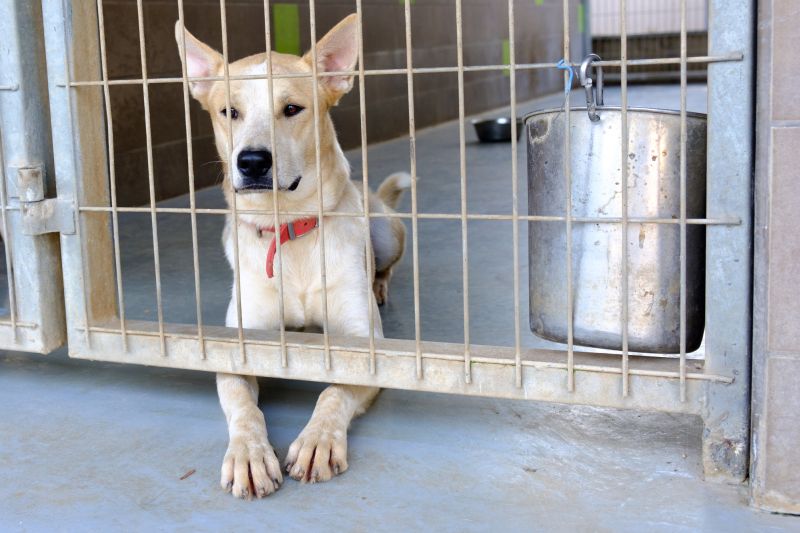
Relinquishing an aggressive dog to a shelter is a potential alternative to behavioral euthanasia, but it is rarely a reasonable, responsible, or ethical choice.
Most shelters cannot or will not adopt out an aggressive dog or one with a documented bite history. In many such cases, the dog will be euthanized in an unfamiliar, stressful, and scary environment without his loved ones nearby. And that’s almost too horrible to type, let alone consider.
In other cases, your poor pooch may spend the rest of his life in a small kennel with little interaction at a no-kill shelter. Some would argue that this is even worse than euthanizing him.
With all that said, it may be worth calling a shelter or rescue and asking if they’re willing and able to accept an aggressive dog. But don’t hold your breath — this alternative is worth exploring, but it’s unlikely to work out in the end.
And as with rehoming, you must disclose any bite history or aggressive tendencies when surrendering to a shelter.
Intensive Training and a Comprehensive Behavior Plan
Behavior modification can sometimes help address a dog’s aggressive behavior.
But it’s essential to choose someone who is very qualified with aggression cases and follows a scientific and modern approach to behavior modification.
A good starting place is the International Association of Animal Behavior Consultants or a Board Certified Veterinary Behaviorist. A professional can build a treatment plan using counter-conditioning techniques and systematic desensitization.
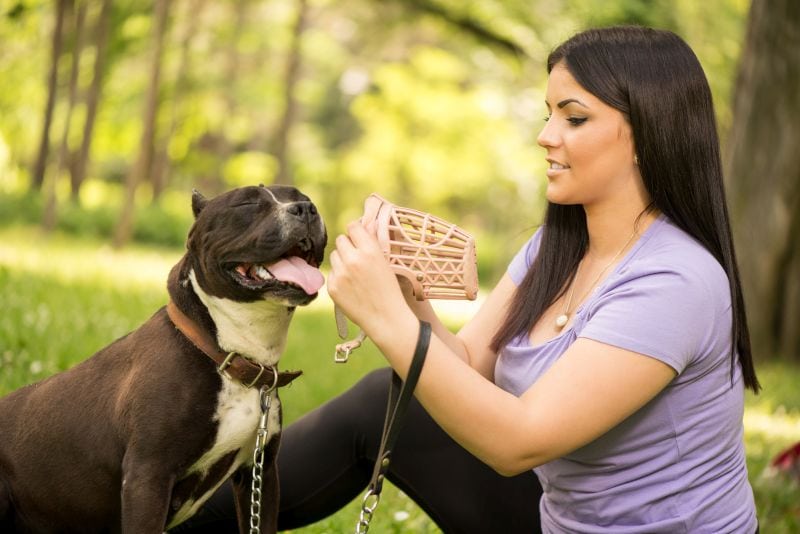
This isn’t a quick fix, and seeing progress with your dog will take time, effort, dedication, and money. It also means disregarding any harmful training tactics, terms, or punishments you’ve heard about in the past, such as alpha-rolling or dominance — these are only going to make the situation worse.
Some owners may be interested in sending their dog away to a doggy boot camp for intensive training, but shipping a dog off to a board-and-train facility isn’t recommended in most cases – especially not for aggression issues.
We won’t go as far as to say these programs are always traumatizing or counterproductive, but the good ones are somewhat rare. You have to really do your homework to ensure that you select one that eschews aversive training methods that may make your dog’s aggression worse upon returning home.
Plus, aggression is not the kind of issue that can be resolved with a two-week boot camp. While ethical, well-managed board-and-train facilities can at times be successful for teaching obedience or basic manners, these programs will absolutely not be able to fix aggression cases.
Aggressive behaviors are situational and often fairly specific. Not only that, but a lot of successful behavior modification will involve you and how you respond and handle his problem behaviors.
This isn’t to say you are necessarily at fault for your dog’s aggression, but his recovery will be based a lot on how you manage and redirect his behavior, and how you desensitize and counter-condition him to triggers. The hard, long work required relies on your effort, not a third party.
Over time, these techniques can be successful in helping your pup to change his reflexive negative emotional reactions to something more positive and to teach him alternative coping strategies.
Additionally, a professional can help you to understand the root cause of your dog’s aggression and how to better read and understand his body language.
Behavioral Medications
There are several types of pharmaceutical products out there, from fluoxetine and tricyclic antidepressants to SSRI’s that may help with the underlying fear or anxiety related to your dog’s aggressive behavior.
You will need to speak with your vet about the different options and what might be best for your dog. Medication, however, is not a solution on its own and should always be used in conjunction with behavior modification.
Behavioral medications can be effective for dogs suffering from certain types of aggression, but they don’t work for all forms of aggression. Also, medications are variably effective among dogs — some dogs exhibit fantastic results, but others don’t seem to improve much at all.
Nevertheless, it doesn’t hurt to discuss the issue with your vet and see if he or she thinks behavior-altering medications would be appropriate in your dog’s specific case.
It’ll also give you the chance to verify that your dog’s aggression isn’t being caused by an underlying medical condition — something you should always try to rule out when faced with a difficult dog.
Management Strategies
Depending on the situation, it may be possible to keep your dog away from other people and/or animals through secure housing and safety measures. These kinds of practices are often referred to as management strategies.
For example, if your dog is aggressive with other people or pets yet gentle and loving with you, you may want to consider this option. Especially if your lifestyle doesn’t require your dog to be exposed to other people or pets very often.
This may mean using a crate or gate (with small dogs) to keep him away from visitors or using a muzzle when it’s impossible to avoid others, such as during vet trips. You may also have to do things like seek out uncrowded parks to visit for exercise and canine enrichment, and take extra precautions when allowing him to enjoy the backyard.
Muzzling is one of the most versatile and powerful management options out there to keep everyone safe when working with an aggressive dog.
There are some wonderfully designed options out there for everyday use, such as the Baskerville Ultra muzzle or Bumas, and others that are similarly designed “basket” muzzles.
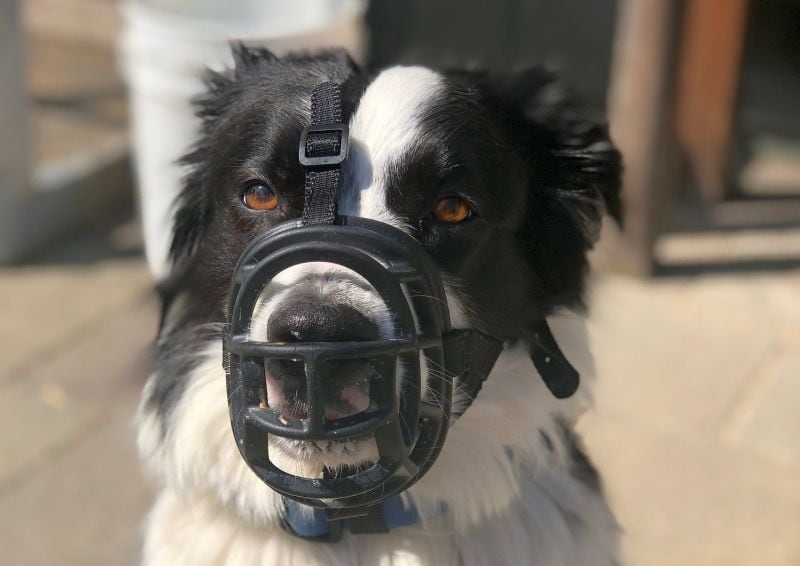
The Muzzle Up! Project has excellent tutorials on how to fit a muzzle and condition your dog to enjoy wearing a muzzle as well, all delivered by experts in the field.
Other management options may include double leashes and a harness when walking providing extra control and a back-up safety measure should one leash fail.
Additionally, you can install a safe and well-constructed fence for containment, or place your dog in a kennel when visitors come over. These tools, when used wisely, may help you to prevent an unfortunate situation from happening.
Living with an aggressive dog is stressful, but it is manageable in some cases.
You’ll simply need to consider your dog’s behavior, your living situation, and your willingness to do the things necessary to keep people, pets, and your dog safe.
No management, however, is foolproof. And it’s strongly advised to seek professional assistance.
Finding Help for Your Aggressive Dog
Deciding whether or not to euthanize an aggressive dog varies from difficult to outright gut wrenching. So, avoid trying to make the call by yourself.
Instead, discuss the issue with professionals, including your vet and a certified behaviorist.
Not only can this help steer you in the right direction and rule out underlying causes (like medical conditions), but it can provide peace of mind long-term and avoid an endless circle of could have-should have-would have in your subconscious.
Ultimately, this is your decision to make, and you know your dog best. But get the input of others who can help.
But that doesn’t mean you can just open Google and pick the first person that shows up — you have to carefully choose the professionals to guide you.
For example, many trainers claim to specialize in aggressive dogs and promise the stars. They’ll often “guarantee” results before they’ve even assessed your pup.
Approach these types of trainers with caution (read: avoid them entirely).
For starters, the dog-training industry is completely unregulated, which means anyone can call themselves a trainer. Many of these so-called “trainers” use toxic methodologies that can backfire and worsen aggression or get someone seriously hurt.
Also, no reputable trainer will ever guarantee results, as some dogs are simply impossible to rehabilitate. For that matter, a lot of dog rehabilitation hinges upon the owner’s actions — something the trainer has no control over.
In fact, trainers aren’t the ideal professionals to work with aggressive dogs, anyway.
Instead (and in addition to your vet), you’ll want to consult with a veterinary behaviorist or certified dog behavior consultant.
- A veterinary behaviorist is a veterinarian who’s trained to be a board-certified animal behavior professional. They can properly assess the connection between your dog’s health and his behavior, and then recommend solutions that may work.
- A certified dog behavior consultant undergoes rigorous, science-based training of dog behavior and training techniques, including the assessment and management of aggressive dogs. These professionals are capable and well-trained, but they are not veterinarians.
There are benefits to working with either of these types of professionals, but both are equipped with the specialized training necessary to handle dog aggression properly.
***
Making the decision to euthanize your dog is a personal one. No one can make that decision for you. However, there are resources and professionals who are out there to help you. The first thing is to let go of the idea that all dogs can be rehabilitated through love.
Have you ever faced this decision with a dog in your life? Tell us your story. Your story may help others to know that they are not alone.





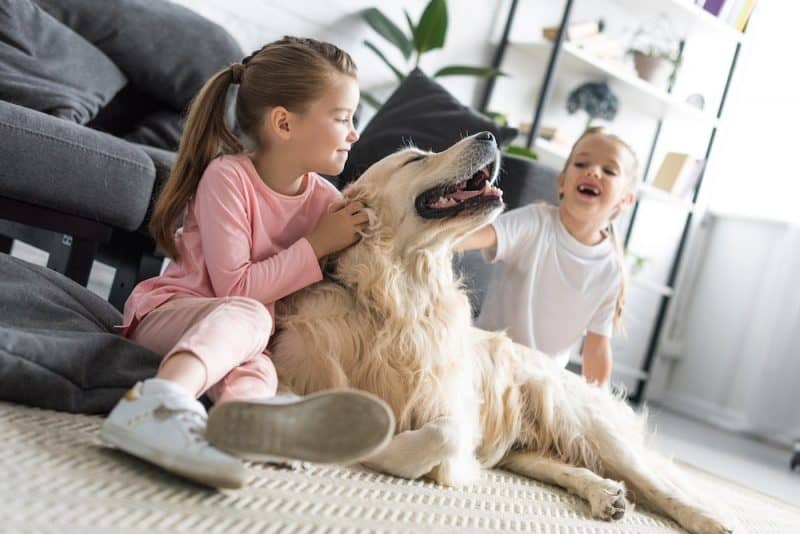
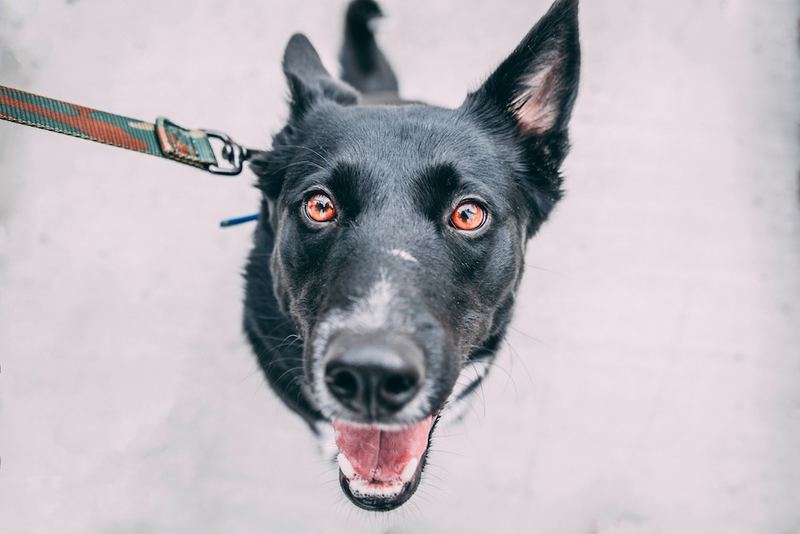

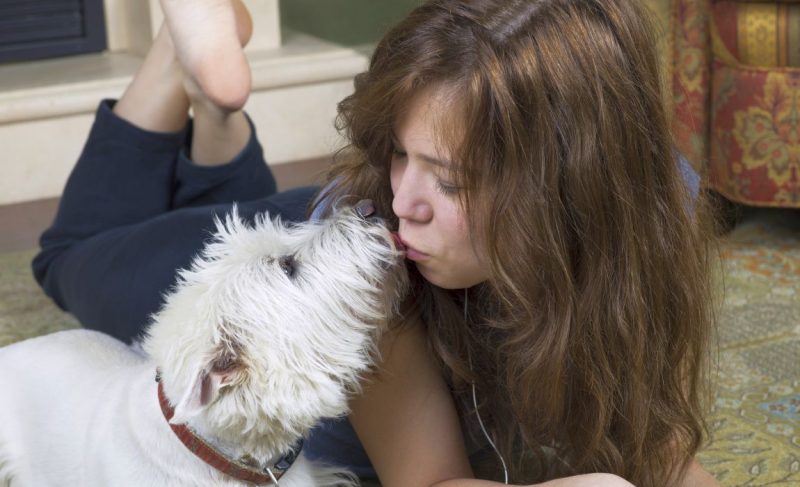

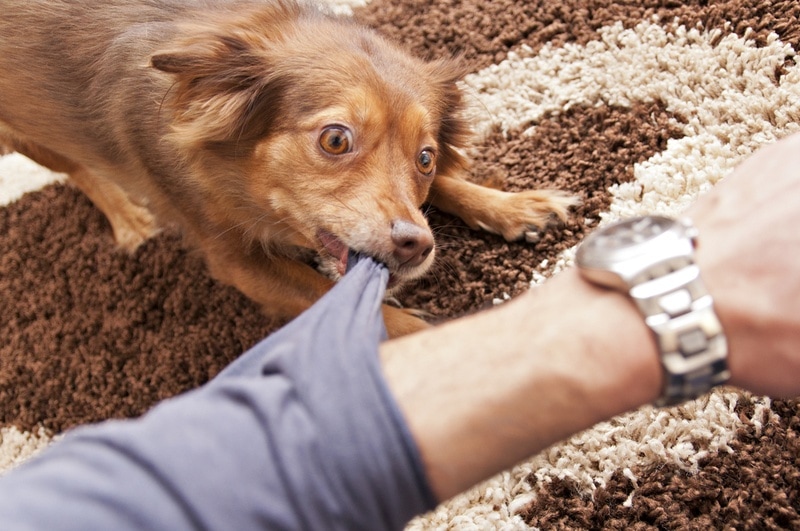


Leave a Comment